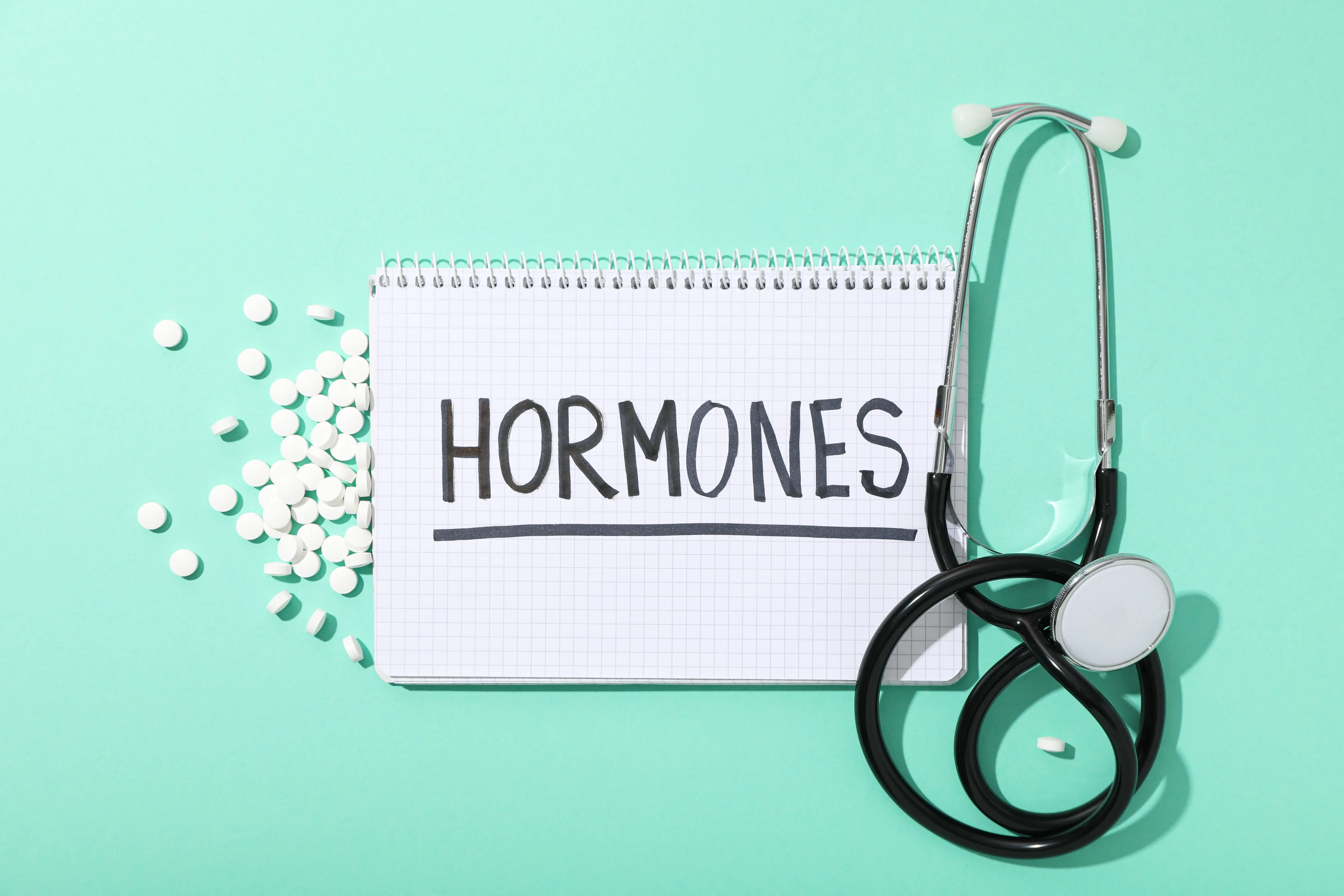Blogs
How Hormones Impact Fertility: Key Facts
June 3, 2025Molly Chu Chen - Labryo Fertility
LifestyleWhat Are Hormones and Their Role in Our Bodies?

(1) What Are Hormones and Their Role in Fertility?
Hormones are powerful chemical messengers that regulate nearly every function in our body. From controlling mood and metabolism to managing growth and energy, hormones play a vital role in keeping our bodies balanced and functioning properly. Common hormones you might have heard of include insulin, thyroid hormones, and adrenaline — all crucial for maintaining daily health.
When it comes to fertility, hormones become even more important. They orchestrate the entire reproductive process, from preparing the body for ovulation and conception to supporting pregnancy. Without the right hormonal signals at the right time, the chances of conception can decrease significantly, and maintaining a healthy pregnancy becomes more challenging.
(2) Why Hormone Balance Is Crucial for Conception and Pregnancy
Maintaining a proper hormone balance is crucial for anyone trying to conceive. If hormone levels are too high or too low, it can disrupt ovulation in women or reduce sperm quality in men. Imbalances can lead to conditions like irregular periods, anovulation (no ovulation), or low sperm count, all of which make conception difficult.
At Labryo Fertility, we offer hormone testing that gives you the full picture. It’s a great first step if you want to know what’s happening under the hood.
Moreover, hormones don’t just influence conception — they are essential throughout pregnancy. They support the development of the embryo, maintain the uterine lining, and prepare the body for childbirth. Hormonal imbalances during pregnancy can increase risks such as miscarriage or preterm labor, highlighting the importance of a healthy hormonal environment for both mother and baby.
Key Hormones Involved in Female Fertility
- Estrogen and Progesterone: Menstrual Cycle Regulation
Estrogen and progesterone are two of the most important hormones regulating the female menstrual cycle. Estrogen is the builder — it thickens the uterine lining and preps the body for a potential pregnancy. Progesterone takes over after ovulation, stabilizing the lining to support implantation of a fertilized egg. Fluctuations in these hormones dictate the different phases of the cycle and influence fertility by signaling when the body is ready to conceive.
- Luteinizing Hormone (LH) and Follicle-Stimulating Hormone (FSH): Ovulation Triggers
LH and FSH are released by the pituitary gland and play a critical role in ovulation. FSH stimulates the growth of ovarian follicles, each containing an egg, while the LH surge triggers the release of the mature egg during ovulation. Monitoring these hormone levels through blood tests can provide valuable insights into fertility status and ovulation timing. If you’re tracking your fertility, Labryo Fertility offers precise blood tests for LH and FSH to help you understand your cycle better and optimize your chances of conception.
- Anti-Müllerian Hormone (AMH): Ovarian Reserve Indicator
AMH is produced by the ovarian follicles and is considered a reliable marker of ovarian reserve — the quantity of eggs remaining in the ovaries. Unlike other hormones, AMH levels remain relatively stable throughout the menstrual cycle, making it an excellent indicator for fertility potential. Low AMH levels may suggest diminished ovarian reserve, which can impact fertility planning. To accurately assess your ovarian reserve, consider getting an AMH blood test through Labryo, which provides detailed reports to guide your reproductive decisions.
Key Hormones Involved in Male Fertility
- Testosterone: Sperm Production and Libido
Testosterone is the primary male sex hormone and is essential for healthy sperm production, sex drive (libido), and overall male reproductive health. Produced mainly in the testicles, it supports the development of sperm in the seminiferous tubules and also influences energy levels, muscle mass, and mood. Low testosterone can lead to decreased sperm count, reduced libido, and fertility challenges. At Labryo Fertility, we often begin with a semen analysis CASA (Computer-Assisted Sperm Analysis) to assess sperm quality, which is closely linked to testosterone levels and reproductive potential.
- FSH and LH: Testicular Function and Sperm Maturation
Just as in female fertility, FSH and LH are key players in male reproductive health. LH stimulates the production of testosterone in the Leydig cells of the testes, while FSH supports the maturation of sperm in the seminiferous tubules. Together, these hormones ensure the development of healthy, motile sperm. Imbalances in FSH and LH can result in reduced sperm production or testicular dysfunction. Blood tests to measure FSH and LH levels are commonly used in male fertility assessments.
- Prolactin and Its Role in Male Hormonal Balance
While prolactin is usually associated with breastfeeding in women, it also plays a role in male hormonal health. Elevated prolactin levels in men can interfere with testosterone production and may lead to symptoms like erectile dysfunction, low libido, and infertility. Chronic high prolactin levels are sometimes caused by pituitary gland issues, and blood testing can help identify and manage this imbalance early. Although it’s not part of every standard fertility panel, prolactin is a crucial hormone to monitor when unexplained fertility issues arise.
Common Hormonal Imbalances That Affect Fertility

- Polycystic Ovary Syndrome (PCOS)
PCOS is one of the most common hormonal disorders affecting women of reproductive age. It’s characterized by high levels of androgens (male hormones), irregular menstrual cycles, and multiple small cysts in the ovaries. Women with PCOS often experience difficulties with ovulation, which can lead to infertility. Addressing insulin resistance, managing weight, and tracking hormone levels are key steps in improving fertility outcomes for those with PCOS.
IVF allows controlled stimulation of the ovaries and retrieval of mature eggs, bypassing irregular ovulation. It’s especially effective for women with PCOS who have not responded well to medications or other fertility treatments. At Labryo, we can help monitor hormone levels like LH, FSH, and insulin, and tailor treatment plans that include IVF or other options. Our lab tests and fertility experts work closely to support patients with PCOS throughout their journey.
- Thyroid Disorders
Both hypothyroidism (underactive thyroid) and hyperthyroidism (overactive thyroid) can impact fertility in both women and men. In women, these conditions may disrupt menstrual cycles, prevent ovulation, or increase the risk of miscarriage. In men, thyroid imbalances can affect sperm quality and libido. Routine thyroid hormone testing can help detect imbalances early and guide appropriate treatment.
When thyroid function is stabilized with medication, IVF gives more control over timing and embryo quality, improving the odds of a healthy pregnancy even for couples with past difficulties.
- High Prolactin Levels (Hyperprolactinemia)
Prolactin is typically associated with milk production after childbirth, but elevated levels in non-pregnant individuals can disrupt the normal balance of reproductive hormones. In women, high prolactin can lead to irregular or absent periods; in men, it may reduce testosterone levels and affect sperm quality. This condition is often caused by pituitary gland issues and can be diagnosed with a simple blood test.
At Labryo Fertility, we will do everything we can to help you best prepare your body for your treatments, and can coordinate your care with reproductive endocrinologists to prepare your body for IVF when needed. Talk to our team today if you're experiencing unexplained fertility issues — prolactin could be the missing piece.
Signs and Support for Hormonal Health & Fertility
1. Recognizing the Signs of Hormonal Imbalance
Hormonal imbalance can show up in subtle — and not-so-subtle — ways. In women, irregular or absent periods are often the clearest sign that something’s off with ovulation. For men, low sperm count or motility may go unnoticed until fertility testing.
Other common signs include:
- Irregular or missed periods
- Low sex drive
- Unexplained weight changes or mood swings
- Hair thinning or adult acne
- Trouble conceiving after 6 -12 months of trying
If you notice these symptoms, it’s time to listen to your body — they could be your first clue that hormonal support is needed.
2. Nurturing Hormonal Health Through Lifestyle Choices

Your lifestyle plays a major role in hormonal balance. Here are science-backed ways to support fertility naturally:
- Diet & Supplements: A balanced intake of healthy fats, proteins, leafy greens, and antioxidants can help regulate hormones. Supplements like vitamin D, inositol, folate, and omega-3 are often recommended for fertility.
- Stress Reduction: Chronic stress can elevate cortisol, which disrupts reproductive hormones. Try meditation, journaling, therapy, or simply doing more of what makes you feel good.
- Sleep & Exercise: Prioritize 7–9 hours of quality sleep and moderate exercise — both are essential to regulating hormone production.
Support and self-care play a key role in hormonal regulation, which directly impacts fertility. Chronic stress elevates cortisol levels, potentially disrupting reproductive hormones and ovulation. Managing stress through mental health support and lifestyle changes can help restore hormonal balance, improving the chances of conception.
Remember, if you are experiencing certain symptoms or are concerned about starting treatments, please consult with a doctor first. At Labryo Fertility Center, we offer unparalleled guidance and empathy to those in every stage of their journey.
